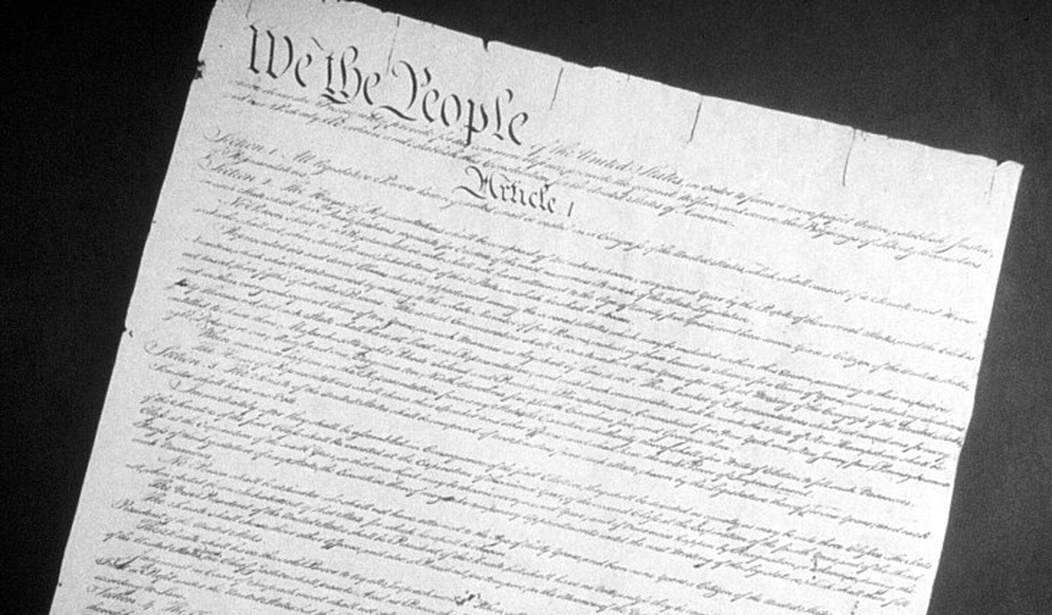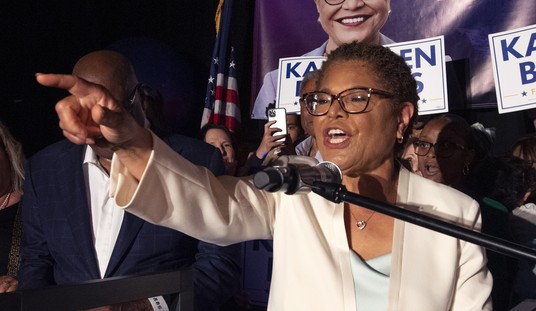How Do We Fix This Mess?
It's Independence Day weekend, and on this anniversary of America's independence, it seems like a good time to muse on the state of our national government and its many and varied problems. As conservatives and libertarians, the one thing we can all agree on is that the federal government has exploded out of control. Federal spending has run amok, the national debt has exploded, and there doesn't seem to be any appetite in either major political party for reining Washington in. So what's a sane citizen to do? What policies can we support, advocate, and work towards that can fix all this?
I'm not sure this can be done without looking at the Constitution itself. Amending the Constitution is difficult by design, but it's been done 27 times, and we can do it again if there's enough support for such an amendment — or a series of them. (There probably wouldn't be for what I'm about to propose, but more on that later.)
To that end — and with full knowledge that the odds of my living to see any of these ratified is about the same as the odds of Brian Stelter having plastic surgery so that he no longer looks like a potato — I’d like to propose a few constitutional amendments, to hopefully help unscrew the mess the federal government has become. Bear in mind that I have absolutely no illusion that these will ever come to fruition; this is purely a pie-in-the-sky wish list of things I would implement were I dictator for a day.
So, without further ado, here they are.
Amendment 28 – Term and Service Limits
Text: The President is limited to one six-year term. Senators are limited to one six-year term. Representatives are limited to three two-year terms. Following the allowed terms, all such persons are forever prohibited from holding elected, appointed, or hired office at the federal level, nor shall any such persons receive any benefits or pensions once leaving office, except in the event of a service-connected permanent injury or disability.
Purpose: No more "political class," obviously. No more lifetime pols suckling at the federal teat for life. A true citizen legislature: you spend some time in office, then go back and live in the mess you made. I'm familiar with the popular argument that the franchise is the ultimate term limit and that term-limiting elected politicians is tantamount to having the government tell us who we can't vote for, but I'm not altogether convinced — and let's face it, the current career pols are the ones who have brought us to this point. Maybe it's time to try something different.
Amendment 29 – Qualification of Voters
Text: The franchise is limited to those citizens of the United States who have attained the age of eighteen on the day of the election, who possess a government-issued photo ID and present the ID at the polling station, and who have filed a tax return on the year previous to the election showing a net payment of taxes at the federal level. All votes shall be cast in person at a designated polling station. Ballot harvesting and mail-in voting, except requested absentee ballots, are prohibited.
Purpose: No skin in the game? You don’t vote. Add a healthy dose of election integrity to that; the 29th Amendment wouldn’t make cheating impossible, but it would make it a lot harder. Of all my proposed amendments, this is probably the one that would provoke the most outrage, but think about it — is it such a bad thing to limit the franchise to those who contribute? There would, of course, have to be some allowance for retirees, disabled veterans, and so forth; in fact, I should think that anyone who serves in the military should have the franchise for life (barring being convicted of a felony) regardless of income; they've paid their dues.
See Related: Justice Thomas Uses Presidential Immunity Case to Question the Legality of the Whole Trump Prosecution
Amendment 30 – Constitutional Tribunal
Text: A fourth branch of government is established, the Constitutional Tribunal, consisting of three Tribunes from each state: One elected by the eligible voters of the state, one appointed by the state legislature, and one selected at random from the rolls of eligible voters. The purpose of the Tribunes is to determine the Constitutionality of all new laws and regulations, as defined in Amendment 31.
Purpose: In our current system, career pols freely pass laws that cannot and should not pass constitutional muster. Unfortunately, someone with “standing” has to challenge those laws to get them tossed out, and the people who passed those laws face no consequences. So let’s have a new branch of government that does nothing else but determine the constitutionality of new laws and regulations, and let’s have the selection of the members split among various groups with differing priorities. Spreading the election/appointment process out also spreads out the motivations of each group, which would hopefully provide a measure of balance among the factions and the various states. Which leads us to…
Amendment 31 – Constitutional Challenge of Laws/Regulations
Text: All new laws and regulations from any source are considered to be potentially unconstitutional and shall not take effect until approved by a 2/3 vote of the Constitutional Tribunal. In the event of a law or regulation being determined to be prohibited by the Constitution, any elected officials who authored, sponsored, or co-sponsored the legislation, or any appointed or hired officials who authored the regulation in whole or in part, shall be immediately removed from office and henceforth prohibited from any elected, appointed or hired office at the federal level.
Purpose: As noted above, consequences. Pass a law or write a regulation that you haven’t absolutely determined is in concord with the Constitution? No soup for you! You are out on your butt and proscribed from ever holding such a position of authority again. I did not include, but am willing to consider, including any president who knowingly (or unwittingly) signs an unconstitutional bill into law. If they vote for or pass something that violates the Constitution, put them back on the block!
As I stated above, there's essentially zero chance any of these would be proposed, much less passed or ratified. There's no way Congress will knowingly strip itself of this much power, and I don't see a convention of the states actually happening, which is the only way these would see the light of day. But I like to speculate, I like to propose discussion, and the world has no shortage of windmills to tilt at.














